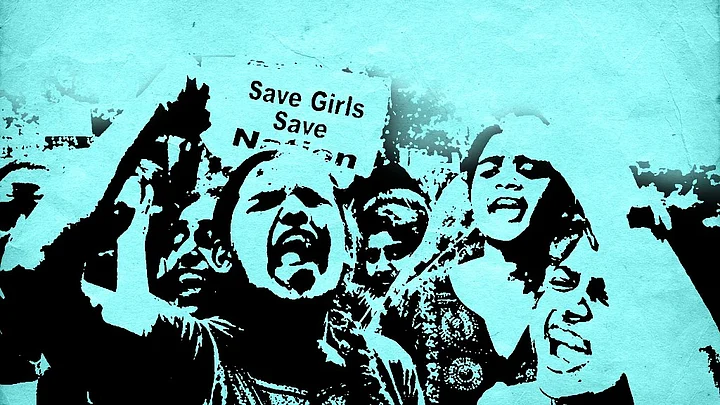As the fight against COVID-19 continues, women in India are having to fight a battle of their own. The pandemic has revealed that while there is an adverse impact on everyone across spheres, a disproportionately greater burden extends particularly to women. Over the last 60 days, varying forms of gender-based violence have emerged. However, some stories stand apart. On the inconceivable, extreme end of the spectrum are some deeply unsettling reports of sexual assault on women who were undergoing treatment for coronavirus at hospitals.
Take a moment to let this sink in.
Sexual Abuse Amid COVID
A 20-year-old woman, who had recently given birth, was sexually assaulted by two staffers at a private hospital in Greater Noida, Uttar Pradesh, where she was undergoing treatment for COVID-19. The staffers, one an employee of the sanitation department and the other a hospital store worker, molested her in an isolation ward on the pretext of taking her samples.
In another disturbing incident, a 25-year-old woman who initially tested positive for COVID-19 and was admitted to an isolation ward of a government hospital in Gaya, Bihar, had alleged that a doctor attending to her sexually abused her on two consecutive nights. She was sent home after testing negative for COVID, but once home, it was observed that she had become aloof and scared. The woman eventually died due to excessive bleeding.
During the investigation, the Gaya police arrested two people who had reportedly posed as doctors and entered the hospital’s isolation ward.
Not Even Isolation Wards Can Ensure Women’s Safety
One would imagine that isolation wards and hospital ICUs are safe spaces where one could hope to recover without fear. However, these incidents have brought to the fore the reality that the safety of women anywhere in India is always a privilege. Even the fear of death or infection does not seem to deter sexual abuse. The perpetrators involved in these incidents clearly did not fear contracting a potentially life-threatening disease. These cannot be seen as impulsive acts but rather, calculated, deliberate plots to exploit vulnerable women.
Only a little over two months have passed since the Nirbhaya case convicts were hanged to death, yet we continue to witness a surge in sexual violence.
One must, therefore, ask: what then was achieved through the death sentences of the Nirbhaya case convicts? Thousands of people had celebrated the verdict. Newspaper headlines hailed the death sentences as a ‘landmark victory’, and political parties and leaders too jumped onto the celebratory bandwagon.
Little to No Link Between Death Penalty & Reduced Rate of Crime
Violence against women remains unabated, and misogyny continues to run deep in our society. If anything, data shows that gender disparity has gotten worse over the years. Take the World Economic Forum’s Global Gender Gap Index 2020 for example. It ranked India 112th out of 153 countries, slipping further down from its 108th position in 2018. As per the National Crime Records Bureau’s report, one rape is reported every 15 minutes in India.
However, in all likelihood, these statistics undermine the gravity of the situation as many crimes against women go unreported due to both fear and stigma.
The world over, research shows that there is little to no correlation between the death penalty and the deterrence of crimes. According to the US-based Death Penalty Information Center, more than two-thirds of the world’s countries have abolished death penalty in law or practice. Yet, India continues to be among the minority of countries that have held onto this practice.
Mindsets Need to Change
As discussions around the execution of Nirbhaya’s rapists were gaining global attention, the United Nations had categorically condemned capital punishment. Even the Justice Verma Committee, whose recommendations were relied upon to reform laws on sexual assault and rape in the aftermath of the Nirbhaya case, had strongly opposed the death penalty. But to satisfy our outrage, we chose otherwise. In hindsight, what may seem like a victory to many is clearly a longer battle which cannot be won without social reform.
If there is a lesson to be learned from the recent incidents of sexual abuse against COVID-19 patients, it is that the demand of death penalty flows from a flawed notion that it will deter crimes against women. What we need is a shift in focus – to change mindsets rather than enforce the death penalty for rapists. This change in mindset must start at home, the classroom, and in the workplace. For if we don’t, no matter how many convicts we hang in the times to come, the deeply-rooted misogyny will continue to manifest in our society.
(Mani Chander is a practicing lawyer based in New Delhi. She holds a Master’s degree from the University of Virginia School of Law, United States, and is licensed to practice in India as well as the State of New York. She tweets @manichander11. This is an opinion piece and the views expressed above are the author’s own. The Quint neither endorses nor is responsible for them.)
